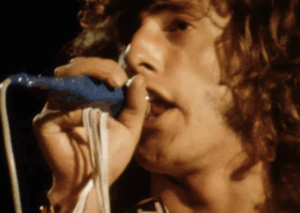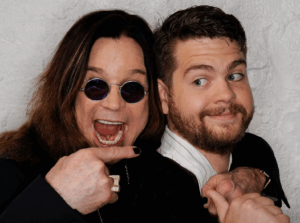When Bruce Springsteen Stripped Down and Got Dark on ‘Nebraska’

via SH News German / YouTube
When Bruce Springsteen recorded a batch of songs alone in his New Jersey bedroom in early 1982, he had no intention of releasing them to the public. What began as a set of demos to guide future studio sessions with the E Street Band ultimately became one of the most stark, powerful albums of the decade — and a career-defining work.
Born in the Bedroom, Meant for the Band
Armed with nothing more than a four-track cassette recorder, an acoustic guitar, a harmonica, and a few sparse instruments like glockenspiel and synthesizer, Springsteen laid down rough versions of 20 newly written songs. The plan was simple: share the tapes with the E Street Band and transform them into the kind of high-energy, full-band rock that defined earlier albums like The River.
But something shifted. As he carried the cassette around and listened back to the raw recordings, Springsteen began to feel that their stripped-down nature wasn’t just a placeholder — it was the point. The bare instrumentation, recorded with haunting intimacy, seemed to underscore the bleak, character-driven narratives at the heart of the songs.
Unlike the hopeful, often anthemic tone of his previous work, the material on Nebraska explored a much darker landscape. From the opening title track — inspired by the true story of a 1958 killing spree — to the unsettling closer, “Reason to Believe,” the album reads like a collection of American Gothic short stories set to music.
A Grim Soundtrack to the American Dream
The songs on Nebraska are populated by criminals, drifters, desperate workers, and haunted family members. “Atlantic City” tells a tale of last-chance redemption in a city on the edge. “Highway Patrolman” follows the moral conflict of a lawman torn between duty and blood. “Johnny 99” centers on a laid-off auto worker who snaps, while “Open All Night” — the closest thing to a rocker on the album — still clings to a sense of isolation and unease.
The themes are grim, but intentionally so. Where The River celebrated working-class resilience, Nebraska depicts the breaking point — a world where the promise of the American Dream has unraveled. The result is a 40-minute meditation on alienation, loss, and moral ambiguity.
Despite its somber tone and lack of commercial polish, Nebraska struck a chord. Released on September 30, 1982, with no singles, no tour, and no promotional interviews, the album climbed to No. 3 on the Billboard chart and quickly became one of the most critically acclaimed records of the era.
Legacy of a Lo-Fi Masterpiece
Over the years, several Nebraska tracks have been reworked by Springsteen and the E Street Band in live performances, fulfilling their original electric potential. Yet even Springsteen admitted that the early band sessions never captured the quiet power of the demos. They were shelved, and Nebraska was released exactly as it was recorded — raw, lo-fi, and emotionally unfiltered.
Some outtakes from the Nebraska era, including early versions of “Born in the U.S.A.” and “Downbound Train,” eventually appeared on his 1984 blockbuster Born in the U.S.A. Others remained unreleased until the 2025 Nebraska ’82: Expanded Edition, which offered fans a deeper look into the creative process behind the album.
Today, Nebraska is widely considered one of the greatest folk-rock albums ever recorded. It marked a turning point in Springsteen’s career, showcasing his evolution from rock icon to serious storyteller. Where earlier records celebrated wide-eyed hope and gritty perseverance, Nebraska revealed the shadows — and in doing so, painted a more complete picture of America.













